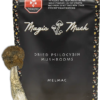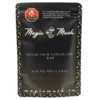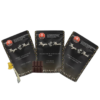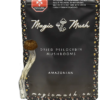Let’s explore the Potential Use of Serotonergic Psychedelics in Autism Spectrum Disorder.
As someone who has always been fascinated by the intersection of mental health and innovative treatments, I’ve seen firsthand how alternative therapies can unlock new possibilities for those struggling with neurodivergence.
Growing up, I had a close friend diagnosed with Autism Spectrum Disorder (ASD). It was evident that while they excelled in many ways, the social and emotional challenges they faced were daunting.
Over the years, I saw them struggle with emotional regulation, social interactions, and even the daily overwhelm that many on the autism spectrum experience.
At the same time, I’ve had the opportunity to explore how psychedelics, especially substances like psilocybin, can help individuals navigate emotional and mental obstacles.
This led me to wonder: could psychedelics, which are already showing promise for treating various mental health conditions, have potential benefits for people on the autism spectrum?
In recent years, the use of psychedelics like psilocybin, MDMA, and other serotonergic substances has become an exciting field of study for various psychological disorders, from depression and anxiety to PTSD and addiction.
But what about autism?
Autism Spectrum Disorder is a complex and multifaceted condition, encompassing a wide range of traits and symptoms that vary significantly from person to person.
As society becomes more open-minded about the potential benefits of psychedelics, the question arises: could these substances provide relief or offer therapeutic benefits for those on the spectrum?
And how might they help with emotional regulation, anxiety, or even social interaction—the areas where many individuals with autism experience the most challenges?
The curiosity surrounding the use of psychedelics for ASD is growing, yet it is crucial to approach this topic with care and an understanding of the nuanced and individualized nature of autism.
Autism is not a one-size-fits-all condition; it includes a spectrum of experiences, ranging from those with high intellectual functioning to those who require significant support.
With this in mind, any therapeutic approach, including the use of psychedelics, must be tailored to the specific needs of the individual.
It’s essential to consider that while psychedelics may offer potential benefits, they also come with risks, particularly for vulnerable populations such as those on the autism spectrum.
As we continue to explore and discuss the potential of psychedelics as a treatment for ASD, this article will dive into the scientific background of these substances, their effects on the brain, the latest research findings, and the personal experiences of those who have used psychedelics for neurodivergence.
The goal is to uncover both the possibilities and the limitations of psychedelics as a tool for autism treatment, while keeping in mind that this is still an emerging field with much to learn.
Through this exploration, we hope to provide a well-rounded understanding of how psychedelics could potentially serve as a beneficial tool in the treatment of Autism Spectrum Disorder, as well as what precautions need to be taken when considering this path.

Understanding Autism Spectrum Disorder
Autism Spectrum Disorder is a developmental condition that affects individuals in different ways, making it a spectrum with various levels of severity.
Some individuals with ASD may have difficulties with verbal and non-verbal communication, while others may exhibit repetitive behaviors, have intense interests in specific topics, or struggle with sensory sensitivities.
The condition is usually diagnosed in early childhood, but its effects can persist throughout a person’s life.
Beyond the core characteristics of ASD, many individuals also experience co-occurring conditions, such as anxiety, depression, and attention-deficit issues, which can further complicate their daily lives.
These additional challenges often intensify the difficulties in communication, social interactions, and emotional regulation.
Since ASD manifests so uniquely from person to person, therapeutic interventions must be highly individualized, catering to specific needs and recognizing the diverse ways in which individuals experience the world around them.
How Serotonergic Psychedelics Work
Serotonergic psychedelics, such as psilocybin, MDMA, and LSD, work primarily by interacting with serotonin receptors in the brain, particularly the 5-HT2A receptor.
This interaction induces changes in perception, thought processes, and emotional experiences. The serotonin system plays a crucial role in regulating mood, anxiety, and emotional flexibility—areas that often present challenges for individuals with ASD.
The potential benefits of serotonergic psychedelics for those with autism lie in their ability to foster neuroplasticity, the brain’s ability to reorganize itself by forming new neural connections.
This plasticity can help individuals with ASD develop new ways of processing sensory input, emotional responses, and social cues.
Many individuals on the spectrum struggle with rigid thinking patterns and difficulty adapting to new information or changes in their environment.
Psychedelics, by promoting neural flexibility, could potentially reduce this rigidity, leading to more fluid emotional responses, improved communication, and a greater capacity for social engagement.
Enhancing Emotional Flexibility
Emotional rigidity is a hallmark challenge for individuals with ASD, often manifesting as intense reactions to sensory stimuli, frustration with communication barriers, or difficulty understanding social cues.
Psychedelics can help reduce these rigid patterns by promoting emotional flexibility.
For example, psilocybin has been shown to increase openness and reduce anxiety, which may assist in modulating emotional responses that feel overwhelming or disproportionate to the situation.
This could help individuals with ASD better navigate stressful or emotionally charged experiences.

Reducing Anxiety and Overwhelm
Anxiety is a common co-occurring condition in individuals with autism, contributing to feelings of overwhelm and difficulty managing day-to-day interactions.
Serotonergic psychedelics, through their effects on serotonin and brain connectivity, may help alleviate anxiety by allowing the individual to shift their perception and emotional response.
MDMA, for instance, has demonstrated significant potential in reducing anxiety and fostering a sense of trust and connection, which could be especially valuable in therapeutic settings for individuals with ASD.
Scientific Studies and Emerging Evidence
While research on the use of psychedelics for autism is still in its infancy, several studies have explored their potential benefits for neurodivergent populations.
In particular, studies on anxiety, sensory processing, and emotional regulation in individuals with ASD have shown promising results.
A study conducted by Johns Hopkins University in 2016 examined the effects of psilocybin on individuals with social anxiety and found that the substance significantly reduced anxiety and improved emotional well-being.
Although this study did not focus exclusively on ASD, its findings suggest that psychedelics might help individuals with similar challenges, such as those on the autism spectrum.
In addition to psilocybin, MDMA has been studied for its ability to reduce anxiety and promote emotional connection.
MDMA-assisted therapy has shown particular promise in treating PTSD, but its potential for individuals with ASD is also being explored, particularly for its ability to foster emotional openness and ease social interactions.
Emerging Research on Psilocybin for Autism
Recent research has begun exploring psilocybin’s effects on individuals with autism specifically. In 2021, a clinical trial tested psilocybin as a potential treatment for social anxiety in individuals with ASD, and preliminary results were encouraging.
Participants reported a reduction in anxiety and an increased ability to engage in social interactions.
These results suggest that psilocybin might play a role in improving emotional regulation and social communication, key areas of difficulty for many people on the autism spectrum.
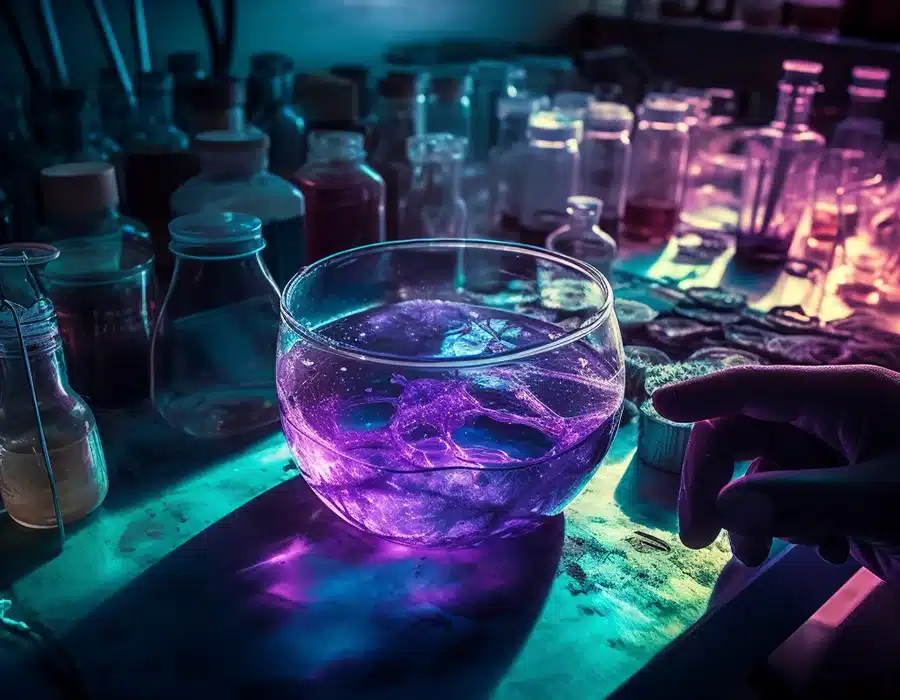
A Journey Through Neurodiversity
Reflecting on my personal experiences with psychedelics, I can’t help but see the potential parallels with how they could benefit someone on the autism spectrum.
In my own life, I have found that psychedelics—specifically psilocybin—helped me gain deeper insights into my emotional world, enabling me to become more self-aware and less overwhelmed by my thoughts.
This personal breakthrough gave me a better understanding of how someone on the autism spectrum might benefit from similar experiences.
One of the most profound shifts I experienced with psychedelics was the reduction in social anxiety. I found that I became more open to connecting with others, even in unfamiliar or overwhelming settings. For someone with ASD, this ability to break down social barriers and increase self-awareness could be life-changing, leading to more fulfilling relationships and enhanced emotional regulation.
Addressing Concerns and Limitations
While the potential benefits of psychedelics for individuals with ASD are promising, it’s essential to approach this therapy with caution and under professional supervision.
Psychedelic substances can be unpredictable, and for those with sensory sensitivities or heightened emotional states, the experience could be overwhelming.
Professional guidance is crucial to ensure a safe and therapeutic experience.
One of the main concerns is the risk of overstimulation. Individuals with ASD often experience heightened sensitivities to sensory input, and psychedelics can amplify these sensations.
Without the right setting or guidance, the experience may become disorienting or distressing.
As with any emerging therapy, ethical considerations around consent and individualized treatment must be taken into account to ensure the safety and well-being of participants.
Psilocybin and Microdosing: A Potential Tool?
While full psychedelic experiences have shown promise, microdosing—taking sub-perceptual doses of psilocybin—has also gained attention as a potential tool for individuals on the autism spectrum.
Microdosing involves consuming small amounts of psychedelics that do not cause a full-blown psychedelic experience but may still offer therapeutic benefits.
Microdosing is a valid strategy to reduce anxiety, and improve creativity, which could be particularly beneficial for those with ASD.
For example, microdosing may help individuals stay present in social situations without feeling overwhelmed, improve their ability to focus on tasks, and provide emotional relief from anxiety.
Although research on microdosing is still limited, anecdotal reports suggest that this approach may offer a more manageable and subtle alternative for individuals who may not be ready for the intense experience of a full psychedelic journey.
The Future of Psychedelics and Autism Research
As research into psychedelics continues to expand, the potential applications for individuals with autism are becoming increasingly clear.
Ongoing studies, combined with the growing destigmatization of psychedelics, may pave the way for more widespread acceptance of these substances in therapeutic settings.
The future of psychedelic-assisted therapy for autism holds great promise, but much more research is needed to fully understand the potential benefits and risks.
Clinical trials specifically targeting individuals with ASD will be crucial in determining the most effective protocols, dosages, and therapeutic approaches.
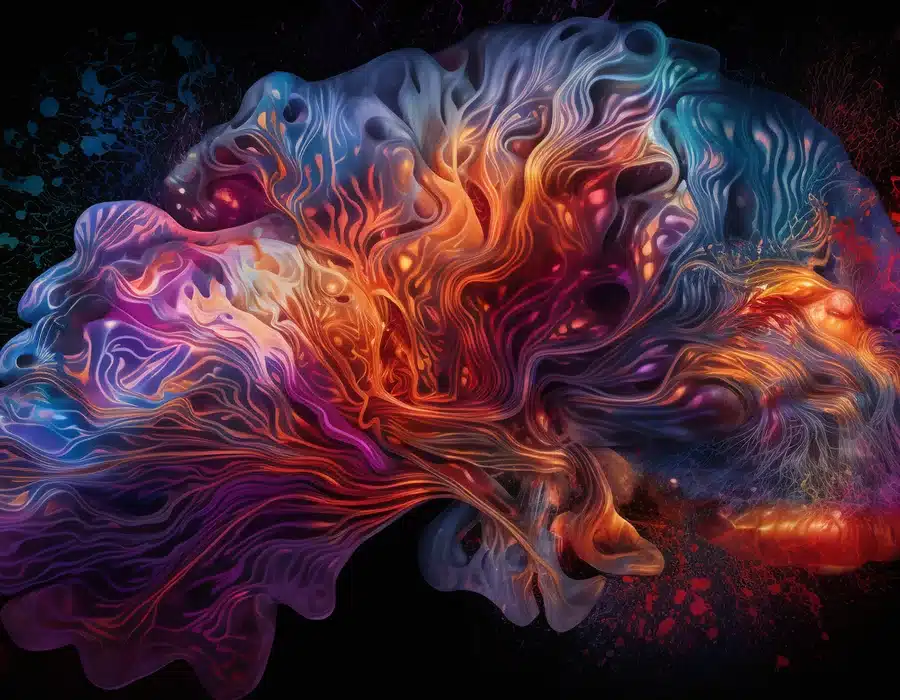
Explore the Potential of Psychedelic Therapy with Magic Mush
In conclusion, the exploration of psychedelics as a therapeutic tool for individuals with Autism Spectrum Disorder (ASD) presents an exciting frontier in mental health care.
Through their interaction with serotonin receptors in the brain, substances like psilocybin and MDMA show promising potential in addressing common challenges faced by those on the autism spectrum, such as emotional rigidity, social isolation, and anxiety.
While the body of research is still growing, the early evidence suggests that these psychedelics may enhance emotional flexibility, improve social interactions, and reduce anxiety, offering a unique approach to treatment for individuals struggling with the complexities of ASD.
As the scientific community continues to investigate these substances’ therapeutic benefits, it is essential to approach their use with caution and ensure that any experiences are facilitated in a controlled, professional environment.
Psychedelic therapy has the potential to dramatically improve the quality of life for individuals with autism, but further research and clinical trials are crucial to establish safety protocols and optimize therapeutic methods.
For now, individuals and families should stay informed and seek professional guidance if they are considering psychedelics as part of a treatment plan for autism.
At Magic Mush, we are committed to providing high-quality, safe, and transformative experiences through our premium selection of magic mushrooms.
As part of our mission to educate and destigmatize psychedelic use in California, we offer a wealth of resources, including dosing guides and information on the therapeutic benefits of psilocybin and other psychedelics.
Our team of experts ensures that all products are rigorously tested for quality and safety, making us your trusted partner on this journey of self-discovery.
We invite you to explore the transformative potential of magic mushrooms and become a part of the growing community that is unlocking their benefits.
Whether you’re looking for information, seeking guidance on safe usage, or ready to try psilocybin for the first time, Magic Mush is here to support you every step of the way.
Join us in challenging outdated perceptions and embracing the future of mental health care through psychedelic therapy.
Visit our website, shop online with confidence, and enjoy exceptional customer support as you embark on this exciting journey.
With Magic Mush, the possibilities are endless, and the benefits of psychedelics are within your reach.
